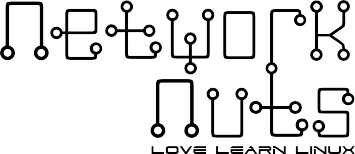Linux Administrator Program
This Linux Administrator Summer Program will help you gain basic skills such as Linux and Python to help you build the most required skills in the IT industry. Linux and Python is a greater combination for freshers to get their first job.

RH124: Red Hat Certified System Administration I
Red Hat System Administration I (RH124) equips you with Linux administration skills by focusing on foundational Linux concepts and core tasks. You will learn how to apply command-line concepts and enterprise-level tools, starting you on your journey toward becoming a full-time Linux system administrator.
Course Outline:
- Introduction to the command line
- Managing physical storage
- Install and configure software components and services
- Establish network connections and control firewall restrictions
- Monitor and manage running processes
- Manage and secure files and file systems
- Administer users and groups
- Review the system log files and journal for issues
- Troubleshoot problems and analyze systems with Red Hat Insights
- Remotely manage systems with SSH and the Web Console
RH134: Red Hat Certified System Administration II
Red Hat System Administration II (RH134) builds upon and lends context to the foundational knowledge established in Red Hat System Administration I (RH124). This follow-on course demonstrates more detailed use cases for Red Hat® Enterprise Linux®, preparing you for the Red Hat Certified System Administator exam (EX200).
Course Outline:
- Install Red Hat Enterprise Linux using scalable methods
- Scheduling jobs using cron
- Tune system performance
- Controlling access with ACL’s
- Manage SELinux Security
- Manage basic storage
- Manage LVM
- Manage advance storage with Stratis and VDO
- Accessing NAS storage
- Controlling boot process
- Manage network security
RH294: Red Hat System Administration III (RHCE)
Red Hat System Administration III: Linux Automation with Ansible (RH294) teaches the skills needed to manage large numbers of systems and applications efficiently and consistently. You will learn the techniques needed to use Ansible® to automate provisioning, configuration, application deployment, and orchestration.
This course is based on Red Hat® Enterprise Linux 8 and Red Hat Ansible Engine 2.8.
Course Outline:
- Describe Ansible concepts and install Red Hat Ansible Engine
- Configure Ansible to manage hosts and run ad hoc Ansible commands
- Write a simple Ansible Playbook and run it to automate tasks on multiple managed hosts
- Write playbooks that use variables to simplify management of the playbook and facts to reference information about managed hosts
- Manage task control, handlers, and task errors in Ansible Playbooks
- Deploy, manage, and adjust files on hosts managed by Ansible
- Write playbooks that are optimized for larger, more complex projects
- Use Ansible roles to develop playbooks more quickly and to reuse Ansible code
- Troubleshoot playbooks and managed hosts
- Automate common Linux system administration tasks with Ansible
Python Programming
This is an all-inclusive program that will introduce you to the Python development language and expose you to the essentials of object-oriented programming. Python has surpassed Java as the top language used to introduce U.S. students to programming and computer science. This course will give you hands-on development experience and prepare you for a career as a professional Python programmer.
Course Outline:
- Creating Your First Program in Python
- Data Types: Classifying Data in Python
- Implementing Input and Output Operations
- Operators: Performing Logical and Mathematical Operations
- Statements: Controlling the Flow of Program
- Strings: A Sequence of Characters
- Arrays: Arranging Similar Objects Systematically
- Implementing Functions in Python
- Lists and Tuples: Managing Data Systematically
- Dictionaries and Other Data Structures
- Recursion and Algorithms in Python
- Implementing OOPs Concepts, Classes and Objects
- Implementing Inheritance in Python
- Implementing Polymorphism in Python
- Interfaces and Abstraction in Python
- Creating a GUI Using Python
- Handling Files I/O
- Connecting to a Database in Python
- Handling Errors and Exceptions
- Regular Expressions
- Interacting with Networks
- Handling Concurrency Using Threads
- Handling Numbers, Dates and Time
What's Included
- Official Training
- Official Books
- Certificate of Completion
- Project – Linux
- Project – Python
- Resume Building
- Placement Assistance – Last Year Students



Expand your knowledge
Weekly Seminars with Industry Experts, Mock Interviews & Resume Building.
Only at Network Nuts.
